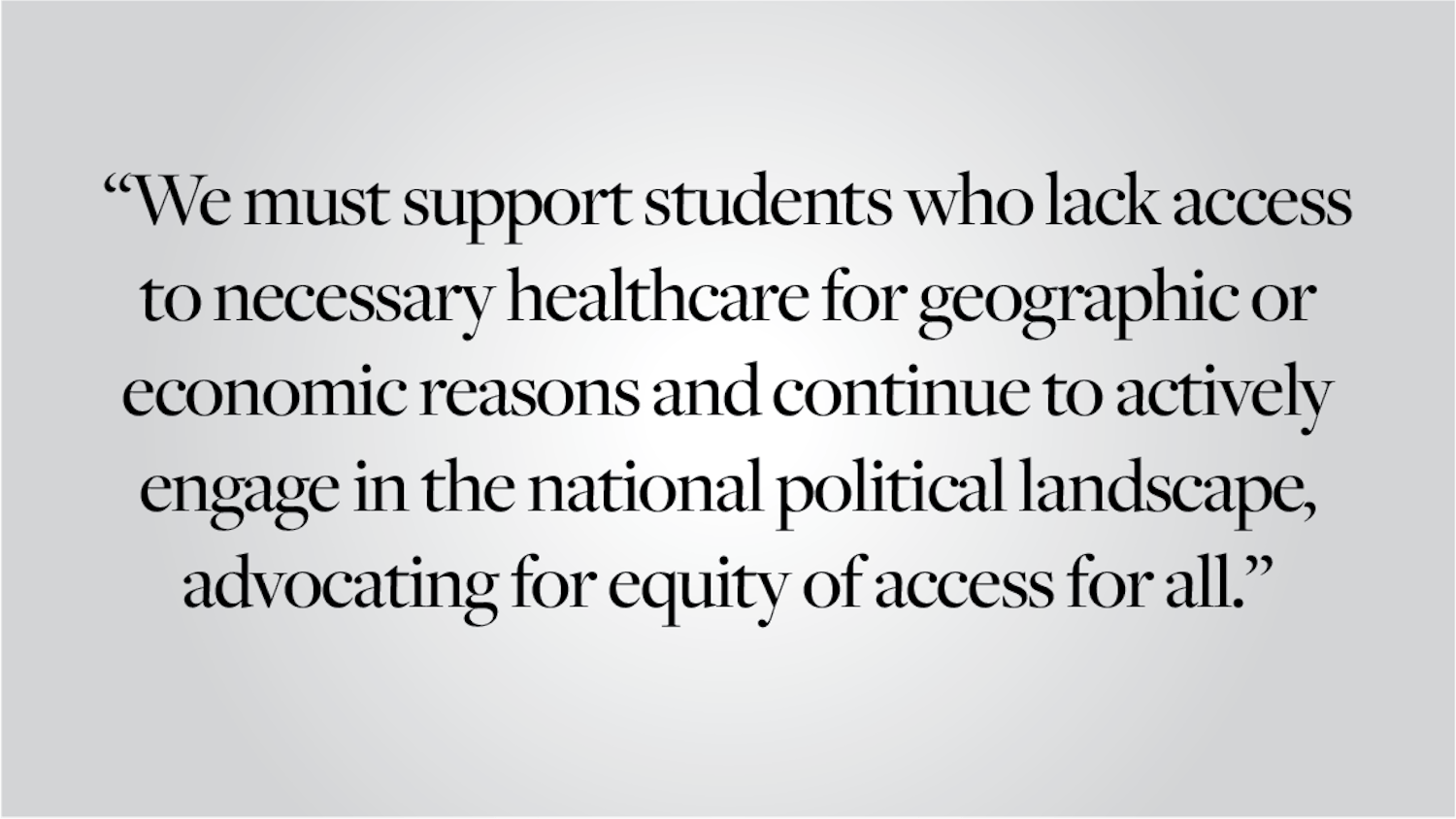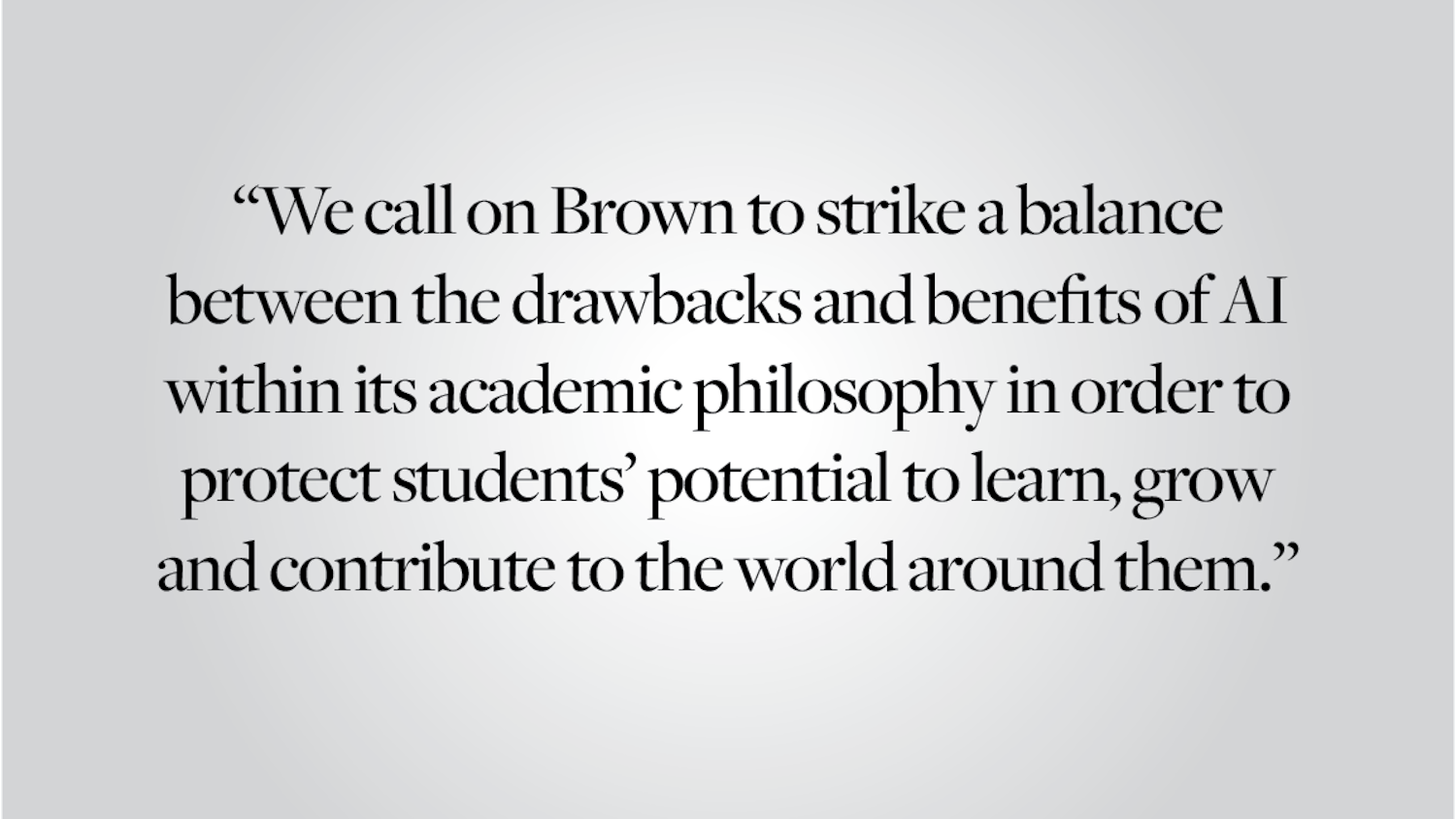Cybersecurity, a pillar of President Obama’s State of the Union address Tuesday, may finally be getting the attention experts have sought for decades. In light of North Korea’s recently confirmed cyberattack of Sony Pictures Entertainment, the issue of cyberwarfare has steadily risen to the surface and is increasingly considered tantamount to traditional modes of global aggression. Defense must always match the newest weapons, and cybersecurity must stay in lockstep with the ever-expanding role of Internet-connected devices. A knowledge of the subject matter, in both a technical and theoretical capacity, is critical to preventing more serious breaches. As such, Brown, with one of the oldest computer science departments in the country, must acknowledge this concern in its curriculum.
It is becoming increasingly more apparent that none of us is immune from the threat of cyberattacks. Popular culture and figures have recently emphasized this, with the recently released flop “Blackhat” focusing on the possibility of an attack on our gas lines or electrical grid that kills millions and former Secretary of Defense Leon Panetta warning two years ago of a “cyber Pearl Harbor.”
More likely, though, are less spectacular attacks on intellectual property and personal information. Last year, the computer security software company McAfee estimated that cyberattacks cost the global economy up to $500 billion annually and might impact 200,000 American jobs in the future. Major companies like JP Morgan Chase and eBay have been victims. Whether consumers or employees, we are all vulnerable, and the new risk calls for universal literacy in the language of this century.
CSCI 1800: “Cybersecurity and International Relations” taught by Professor of Computer Science John Savage should serve as a paradigm in an expanded selection of courses offered by the University to address the complex and far-reaching nature of the issue more sufficiently. Savage, who also offers a higher-level course on security, seeks to provide a layman’s understanding of technological vulnerabilities and the limitations of our defenses. Not every student must understand the coding behind a distributed denial-of-service attack, but if we are informed about the systems on which we depend, we are more likely to act responsibly.
In his State of the Union address, Obama placed appropriate weight on the issue, asserting, “No foreign nation, no hacker, should be able to shut down our networks, steal our trade secrets or invade the privacy of American families.” The president’s vocal response to North Korea’s recent aggression represents a possible turning point in prioritizing the issue. As such, the proposed Cybersecurity Information Sharing Act introduced in the Senate highlights the government’s aim to more effectively “integrate intelligence to combat cyber threats, just as (it has) done to combat terrorism,” Obama said in his address.
True national dedication to these threats could lead to real change. As a liberal arts institution, Brown holds some responsibility in facilitating and supporting an appropriate academic recalibration. Whether as individuals or as members of organizations and corporations, a generation of educated computer users could transform our cyber defenses.
Editorials are written by The Herald’s editorial page board: its editors, Alexander Kaplan ’15 and James Rattner ’15, and its members, Zoila Bergeron ’17, Natasha Bluth ’15, Manuel Contreras ’16, Baxter DiFabrizio ’15, Manuel Monti-Nussbaum ’15 and Katherine Pollock ’16. Send comments to editorials@browndailyherald.com.




